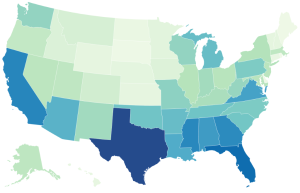
The cloud computing sector has been on an impressive growth trajectory, with projections suggesting its market capitalisation will quadruple to a staggering $2.3 trillion by 2032.
However, this rapid expansion comes with its own set of challenges. The market’s concentration among a few major players like AWS, Azure, and Google Cloud poses significant risks. A systemic failure of any of these giants could have far-reaching consequences for companies and individuals worldwide, as evidenced by Meta’s March 2024 outage that affected at least 600,000 people globally.
This is where DePINs (Decentralised Physical Infrastructures) and DeRENs (Decentralised Resource Networks) fit in. Utilising these cutting-edge technologies helps provide a viable solution not only to safeguard against the vulnerabilities of centralised systems but also to improve levels of assurance around data processing security and transparency, with the added value proposition of reducing operational and administrative costs.
A new report, published by Cointelegraph Research and SwanChain, tackles the most important problems of the cloud computing sector and how DePINs and DeRENs can truly democratise this vital market.
The rise of computationally intensive AI models, expected to reach a market size of approximately $1.4 trillion by 2029, is fueling the growth of DePINs and DeRENs. These decentralised networks are democratising AI development by making computing power more affordable.
If smart contracts can make Web 3.0 a reality, they might also have found a way to level the AI playing field. For example, Flux offers Google Cloud-level services for $5, compared to the $300 Google once charged. The report provides an in-depth explanation of the factors behind this significant cost reduction.
SwanChain: Pioneering decentralised cloud computing
SwanChain is positioned at the centre of this revolution, having created a decentralised cloud computing platform through which resources, including computational power and storage, can be accessed. It acts as an AI computing and storage bidding market, where users post their requests for resources that providers fulfill. This unique approach significantly saves on the time and costs associated with traditional cloud services.
Operating with its own infrastructure network, SwanChain’s team believes that running a ChatGPT-like model on it could be around 40-50% cheaper than using major market players like AWS.
AI and ZK computing: The next frontier
SwanChain’s ecosystem is built on a decentralised network of hardware providers executing computing tasks for users. The platform supports payments in various tokens across blockchains and offers services based on zero-knowledge (ZK) computing technology. Within just two months of launch, the platform processed nearly 350,000 ZK computing tasks, demonstrating its capacity to provide computing resources for ZK applications at scale.
The report also provides a comprehensive overview of the rapidly expanding DePIN sector, comparing notable projects such as Filecoin and Render Token. These case studies illustrate how decentralised networks can enhance AI applications and reshape the cloud computing landscape.
Cointelegraph research: Driving industry insights
As the cloud computing sector continues to evolve, DePINs and DeRENs are poised to play a crucial role in shaping its future, offering more resilient, cost-effective, and accessible solutions for businesses and individuals alike.


Want to learn more about cybersecurity and the cloud from industry leaders? Check out Cyber Security & Cloud Expo taking place in Amsterdam, California, and London. Explore other upcoming enterprise technology events and webinars powered by TechForge here.
Tags: AI, AWS, cloud, google cloud

